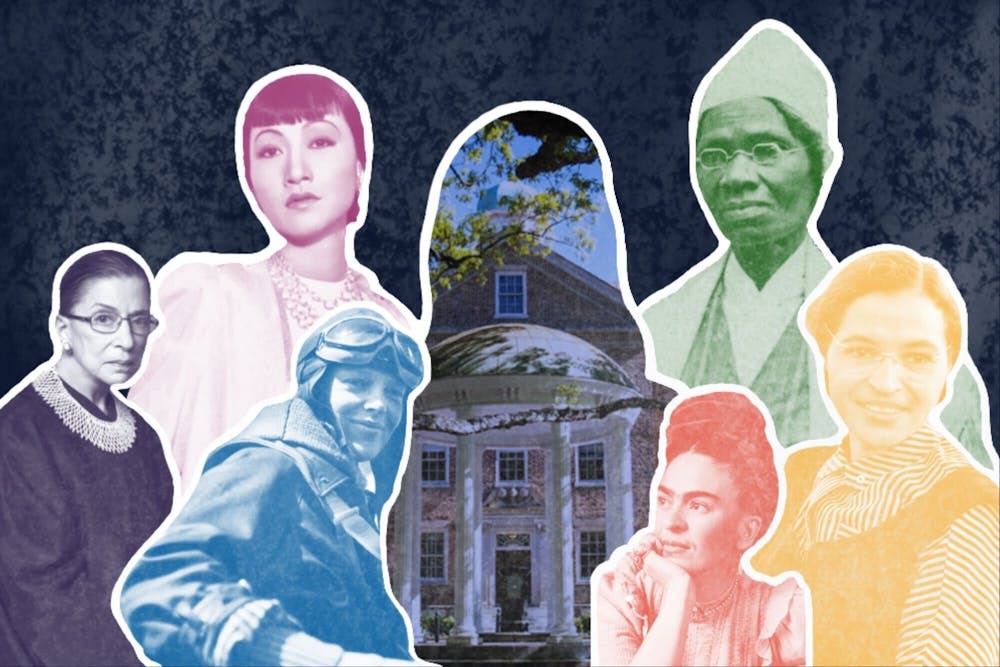Throughout Women’s History Month, students and faculty members have had the opportunity to explore female experiences and intersectional identities across three separate University Libraries’ exhibitions.
Climbing the Hill
“Climbing the Hill,” one of the library exhibitions, was developed by students in HIST 179H, Women in the History of UNC-Chapel Hill. The project explores the history of women as students, enslaved laborers, lodging house and food service workers, faculty wives and other roles, Katherine Turk, associate professor of history and the teacher for the course, said.
Turk guided the students in their creation of the project with the help of North Carolina Research and Instruction Librarian Sarah Carrier, Special Collections Exhibits Coordinator Rachel Reynolds and Humanities for the Public Good Graduate Fellow Lara Lookabaugh.
Originally intended to be a physical exhibition in Wilson Library featuring historical artifacts accompanied by a walking tour throughout campus, "Climbing the Hill" explores the experiences of women on the UNC campus virtually due to the pandemic.
Despite the disruption, Turk said the transition to a virtual tour had a silver lining: a permanent space on the internet.
“There was a kind of comfort in the fact that those pieces will live forever,” she said. “If we had put up the exhibit, and I think it was supposed to stay up through the summer, but it would have been long gone years ago.”
Turk said students recognized the nuances of history where achievements can be celebrated and continuing inequalities can be recognized.
“The students did not want to tell a triumphalist story,” Turk said. “I often feel that I have to teach against the assumption that history is a sort of forward march to progress, that things just kind of inevitably change for the better.”




